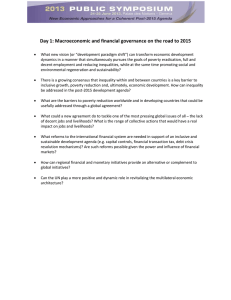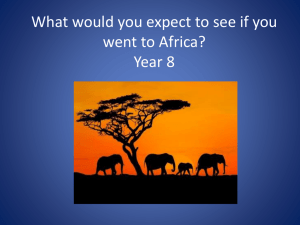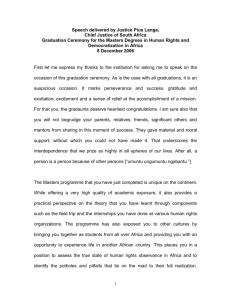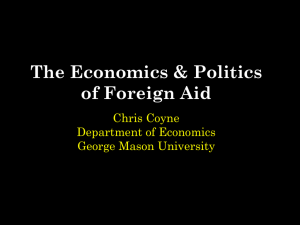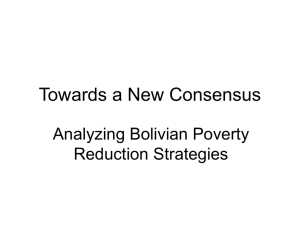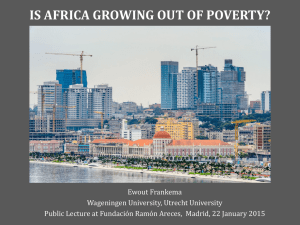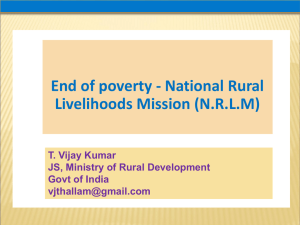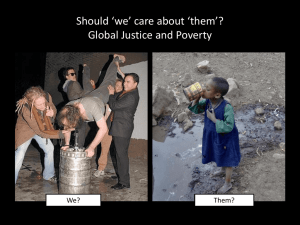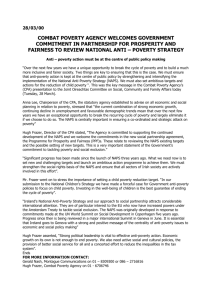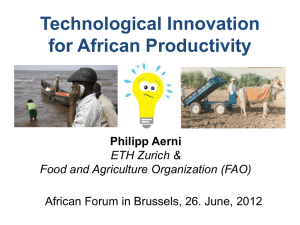Engaging with South Africa`s Anti-Poverty Consensus
advertisement
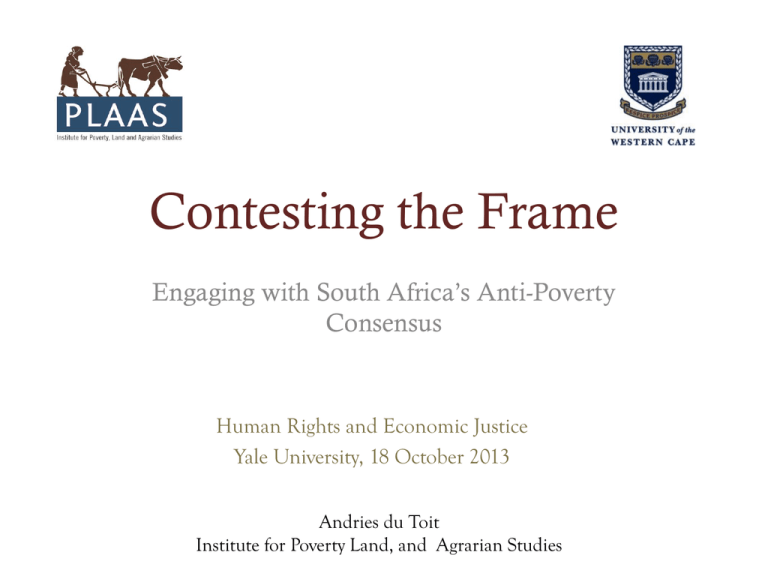
Contesting the Frame Engaging with South Africa’s Anti-Poverty Consensus Human Rights and Economic Justice Yale University, 18 October 2013 Andries du Toit Institute for Poverty Land, and Agrarian Studies A disclaimer No heartening tales of triumph or ‘best practices’ for ‘uptake of evidence’. The search for impact is about contestations on a political terrain. In this talk: questions and reflections about the search for a strategy PLAAS “ … does research, policy engagement, teaching and training about the dynamics of chronic poverty and structural inequality in southern Africa…” Our focus is on the dynamics of vulnerable and marginalized livelihoods in rural areas and within South Africa’s agro-food system Opportunities and challenges One set of opportunities and challenges flow from the peculiar nature of the pro-poor consensus in South African politics… … others flow from the political (dis) organization of the policy process in the South African state. South Africa’s anti-poverty consensus Since 1994, there has been an unusual degree of agreement on the centrality of poverty as an issue of political and social concern and on the measures needed to address it… … but there is a disjuncture between the hopes embodied in this consensus and the ability to address the root causes of poverty. The limits of the pro-poor consensus Part of the problem lies in the structural nature of the processes and relationships that entrench and perpetuate structural inequality and poverty… … and part lies in the nature of that anti-poverty consensus itself. Poverty is framed in depoliticized ways that mystify its nature, obscure its causes, and disconnects poverty from a concern with inequality. The policy process Until 2009, presidential hegemony in an increasingly centralized and tightly controlled policy process Evidence and findings that cannot be reconciled with dominant policy narratives are marginalized or ‘silently silenced’ Since 2009, an increasingly incoherent policy framework characterized by a ‘war of position’ between vying ideological factions… … so that ‘pathways to impact’ via policy change become increasingly fragile and disconnected Strategic aims To support the capacity for the development (within state and civil society) of better ‘theories of change’ about the constraints to and opportunities for livelihoods at the margins of the South African economy (Neither simple optimism about the effects of ‘growth’ (World Bank, 2013), nor apocalyptic narratives about ‘neoliberalism’ and ‘waste lives’ capture the complexity of the threats or the opportunities) Our strengths and resources Using detailed research to develop an in-depth qualitative understanding of the dynamics of livelihoods at the economic margin… Using participatory pedagogic methods to support processes of social learning that allow people to ‘reframe’ their understanding of complex processes… Using our symbolic and reputational capital (!) to act as a convenor and commentator in public space. The terrain We need to move away from a narrow focus on the state, formal policy, and expert decision-making towards an engagement with a wider array of actors within and outside the state. Engaging with private governance of the South African Food system Reframing debates, contesting myths Using resources and training to contest the ways in which South African media frame debates Will it work? “It’s too early to tell”…
